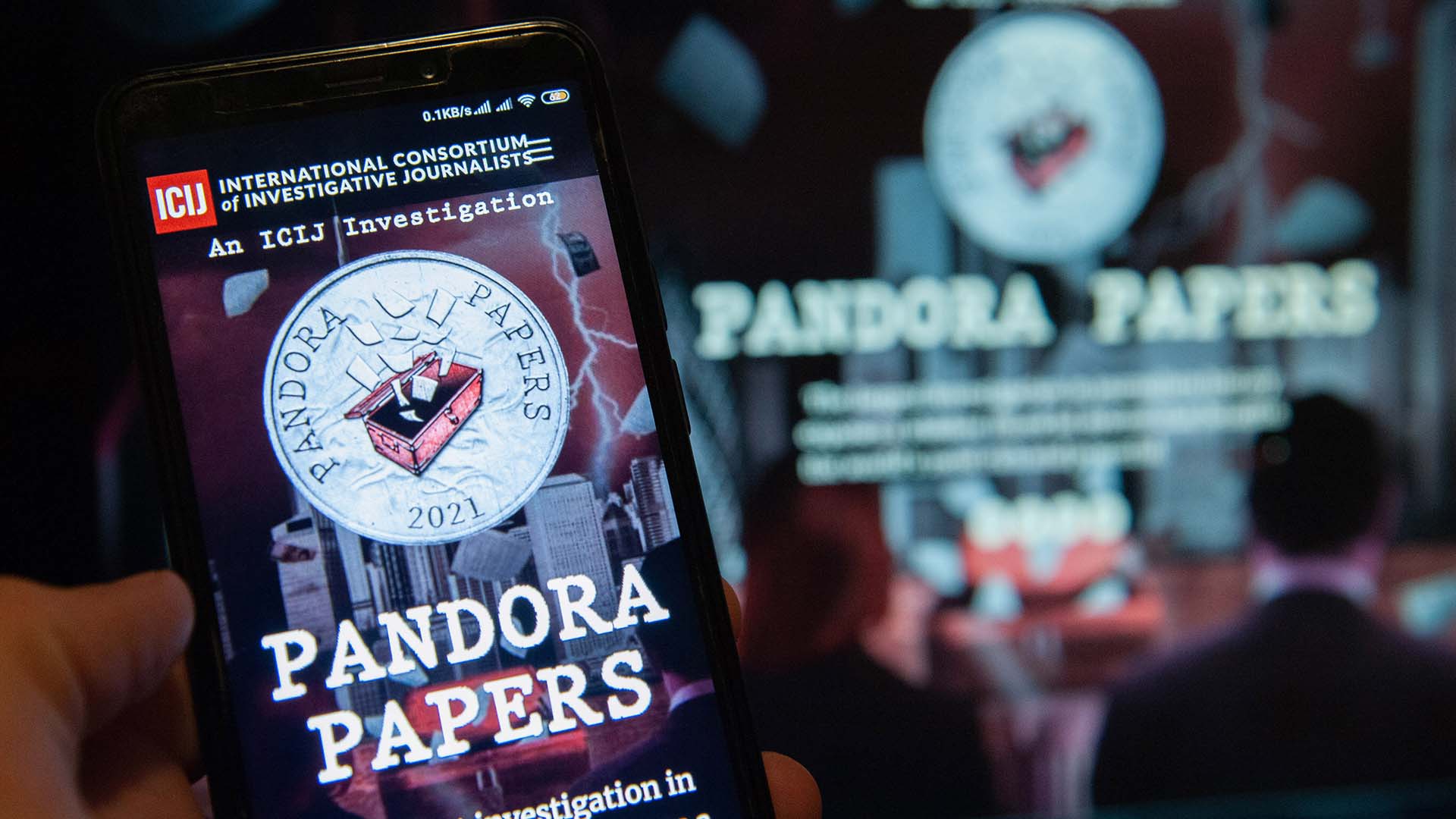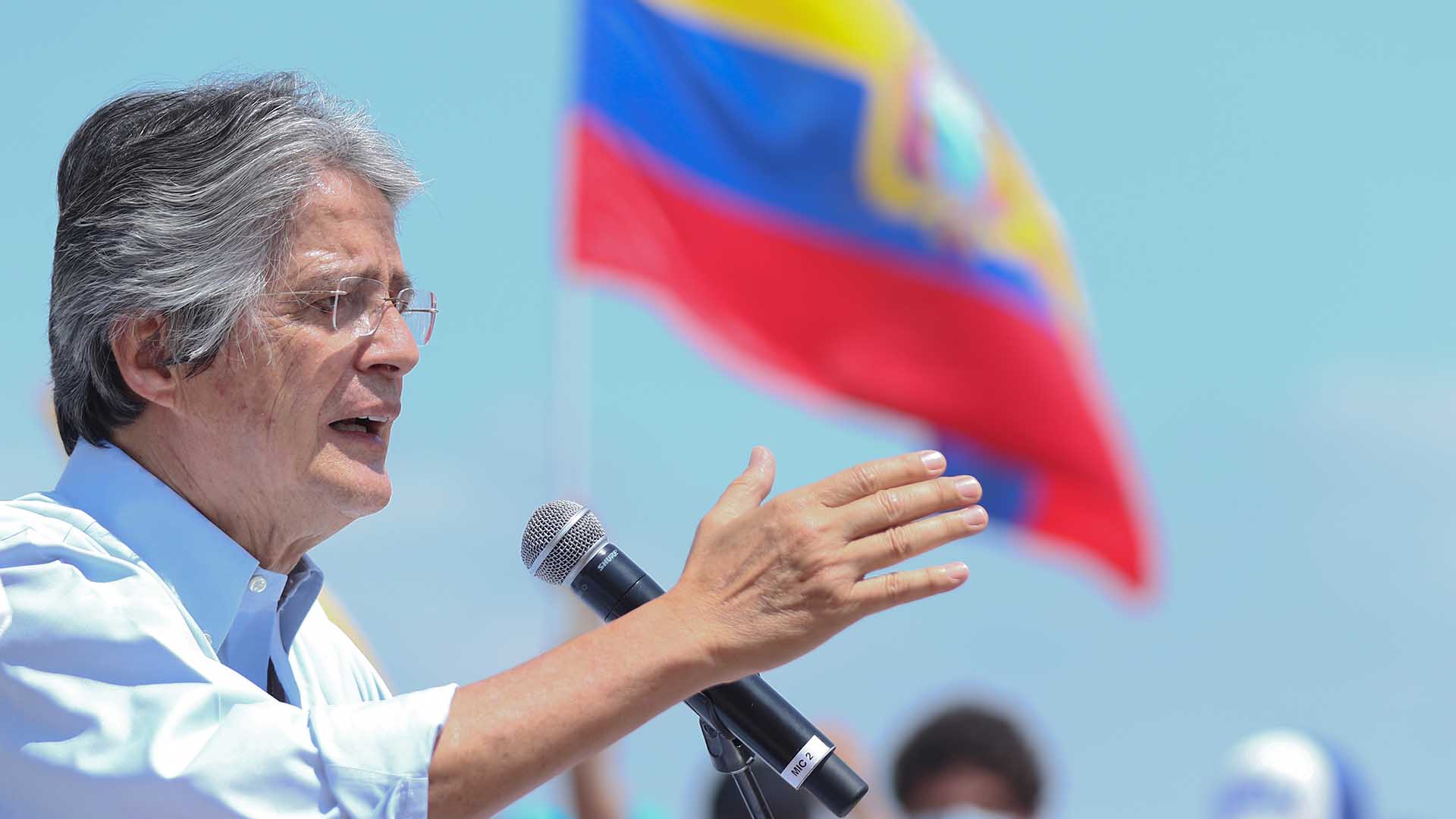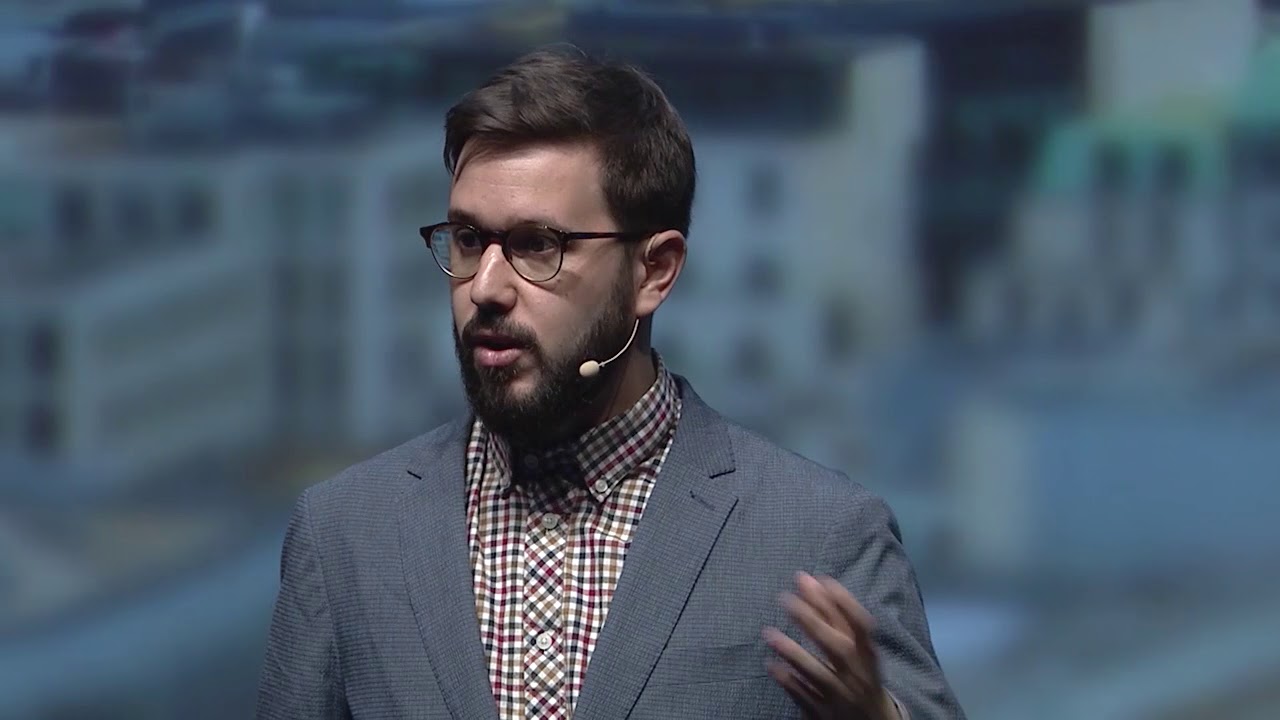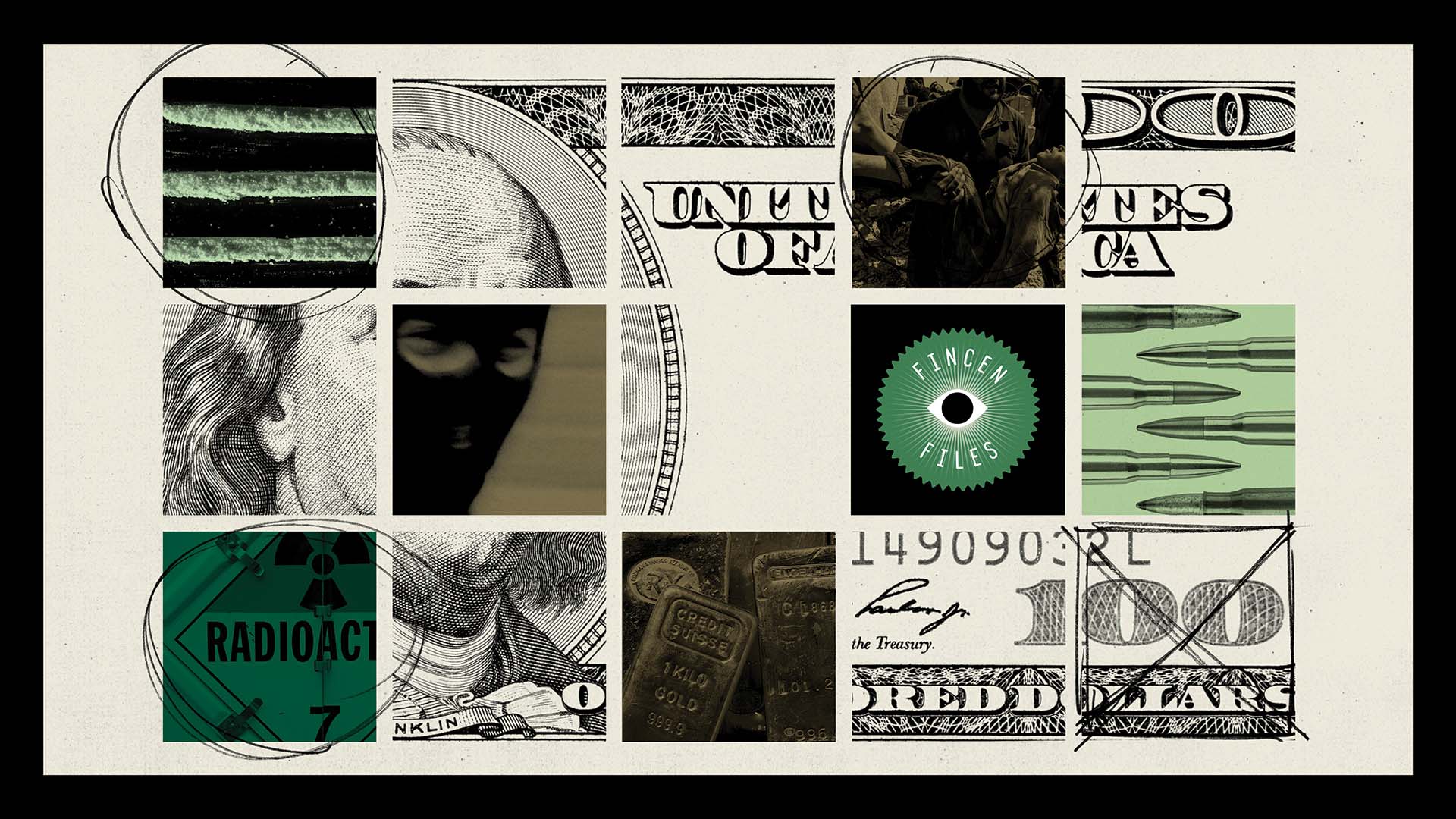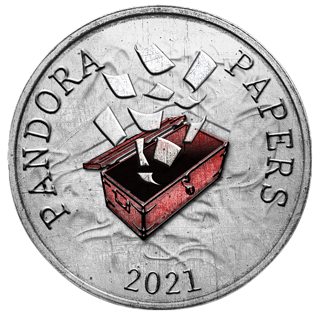Behind the scenes of the Pandora Papers — the biggest reporting collaboration of its kind in history — were flashes of drama, flocks of legal letters and flurries of name checks. One minute, we coped with reporters fleeing Russia for their own safety; the next fiery letters from presidents, prime ministers and pop stars’ lawyers; then debates over nomenclature or transliteration. Pick a winner: Zelensky; Zelenskyy; Zelenskiy?
The Pandora Papers project grew to include more than 600 journalists from 117 countries. Our online calls were symphonies of entry chimes; cacophonies of connectivity issues; virtual towers of Babel. We tramped through pandemic mists to an ancient Khmer jungle temple looted of artifacts; uncovered a king’s secret Malibu mansion cresting a clifftop; carved through fog to an Italian village suffering feared chemical poisoning of its water.
The investigation exposes the inner workings of 14 offshore providers, set up to manage shell companies and trusts. Shell companies might sound like serried ranks of periwinkle pickers fathoming the mysteries of frail and radiant whelks of the sea but, in reality, they are one of the most harmful things ever fashioned: a multi-trillion dollar drain on the foundations of good governance by corporations that exist only on paper and are used to disguise business ownership.
Altogether, there are more than 11.9 million “papers” in this Pandora’s box, representing underground river systems of financial flows that the remarkable ICIJ data and technology teams diverted into a vast lagoon called Datashare where reporters seated on virtual banks could quietly fish the financial information of 30,000 offshore companies by day and by night.
When ICIJ director Gerard Ryle obtained the 2.94 terabyte trove, the ICIJ editorial team knew we were onto something. Little did we know how big. “John Doe,” who famously leaked the Panama Papers, declared: “The revolution will be digital.” The prefix Tera is derived from the Greek word for monster. Our goal was clear: Tame the fiendishly complex “offshore” monster digitally.
We knew, to paraphrase the words of the ancient Chinese military commander and gift to T-Shirt makers everywhere, Sun Tzu, that we had a hundred battles on our hands. Time, complexity and stress are the combined enemy in every major collaborative, journalism project. For practitioner-of-pithy-patience Sun Tzu, the art of war consists in breaking the enemy’s resistance without fighting.
I would agree with the doubty warrior.
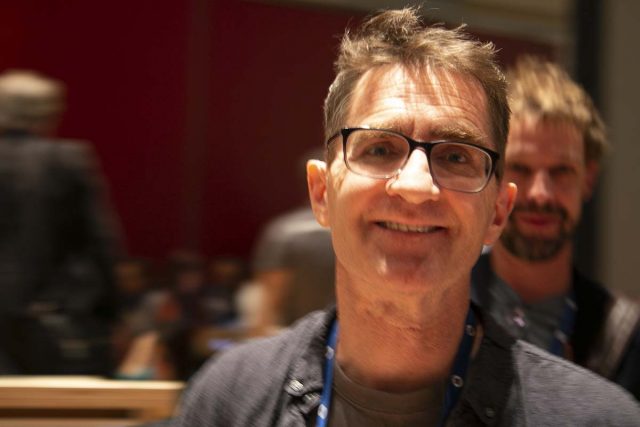
Having had the privilege (supported by a phenomenal team) to oversee the two biggest journalism projects in history, Pandora Papers and FinCEN Files, I have learned three key lessons to privately decorate my own dish cloth with:
- When things are quiet, be busy. When things are busy, be quiet.
- Trust that knowledge grows. Involve to teach. Be involved to learn.
- Never let a small fight stand before a big deadline.
Following on from the Panama Papers in 2016 and and Paradise Papers the following year, Pandora Papers could be seen as ICIJ’s equivalent of Tax Havens III but in reality it sits along an archipelago of projects stretching back further still, each building on the previous one to drag the questionable financial dealings of the rich, the powerful and the criminal from their offshore boltholes.
Past ICIJ efforts have been instrumental in awakening — at times — hopeful global debate on taxation, secrecy and income inequality; the financial industry’s dizzying trickery and the heavy price we all pay for its discreet dominance over public policy. Our work this time round revealed the secret offshore holdings of 35 world leaders, more than 330 politicians and high-level officials and more than 130 billionaires — in turn whipping up a global storm.
In the film Spotlight — a movie that follows the Boston Globe’s investigation into sexual abuse in the Catholic Church — there is a scene in which the reporters who’d written the first blockbuster stories asked Globe editor Marty Baron for guidance on how to handle some of the blowback.
Baron’s response was to tell his team to keep reporting.
“Sometimes it’s easy to forget that we spend most of our time stumbling around in the dark,” he said. “For me, this kind of story is why we do this.”
He wanted the Boston Globe reporters to reveal not individuals but the entire corrupt system and confront it head-on. And that, in its own way, is what ICIJ was attempting when it asked Baron (by then, editor-in-chief of the Washington Post) to join the Pandora Papers project. Baron and the Post team, which was led by Cameron Barr and Ziva Branstetter, didn’t hesitate for a moment. Baron’s replacement at the top, Sally Buzbee, was equally supportive.
The Post was one of what would eventually become a coalition of 150 media partners from around the world.
As Sun Tzu would have described it: we moved as one, letting our plans dark and impenetrable as night fall like a thunderbolt.
Joining the global team were reporters from countries where press freedom is under constant and intense threat. Our partners in Belarus, Sri Lanka, Ecuador, Paraguay and Pakistan, as well as Russia, all faced profound, and sometimes grave, challenges during the project. Reporters from several countries moved across borders in order to be able to continue to work on the Pandora Papers free from the threat of jail, or worse. Many others had to navigate the chaos caused by COVID-19. Heightening tension, two days before we were set to publish, ICIJ’s website was briefly crashed by a massive cyber attack.
Regardless of threats, intimidation and the complex logistical challenges of working in secret across the globe over two years, ICIJ and its partners published the Pandora Papers together on Sunday, October 3, at 12:30 p.m. EDT on the dot, or as Sun Tzu would have described it: we moved as one, letting our plans dark and impenetrable as night fall like a thunderbolt.
In the days since the first Pandora Papers’ stories were published, our work has put several international leaders — in nations as far flung as Chile to the Czech Republic and Kenya — under fierce scrutiny.
Experts say our reporting may have contributed to the Czech Prime Minister Andrej Babis’s party losing a previously assured election victory. A criminal probe and impeachment bid was launched into the President of Chile, Sebastián Piñera, and politics in Peru, Colombia, Brazil, the U.K. and the Netherlands have been roiled, too. In the U.S., a new bill was put to Congress on foot of our project aiming to require trust companies, lawyers, art dealers and others to investigate foreign clients seeking to move money into the U.S. system.
ICIJ’s authentic, rigorous and vigorous journalism; our ability to really get behind millions of deliberately opaque documents; our willingness to confront the wealthiest, the most powerful and, by times, the most dangerous relies upon the support of our trusted partners. We are fortunate that technology allows us to ride huge waves of information but never lose sight of trust in one another that spares us from being lost to unforgiving seas.
By virtue of more than a decade of reporting by ICIJ and its partners, fueled by the generosity of our readers, supporters and donors, the public can now see through the spray to the deeper currents below, grasping with greater perspective and context the scope of the offshore industry as it stands today, who it privileges and who it harms.
The Pandora Papers reveals a giant, secret, shadow system that’s shifting tax burdens from those who can best afford it to those who can least afford it. In Lebanon recently, to give just one example, the traffic lights have stopped working because of an economic catastrophe. Yet the Pandora Papers feature Lebanese power players hiding their riches. ICIJ’s work doesn’t make for easy reading. As the writer Herman Melville put it: “Truth uncompromisingly told will always have its jagged edges.”
But an unflinching optimism lies at the heart of every ICIJ project.
My colleagues Dean Starkman and Gerard Ryle summed up Pandora Papers memorably so in a co-penned note: “In a real sense, we’re living in a troubled world that offshore has made. Democracy’s greatest and least-appreciated strength may be its ability to reform itself. But democracy can’t reform what it can’t see.
“Now, it can. Let’s get on with it!”

